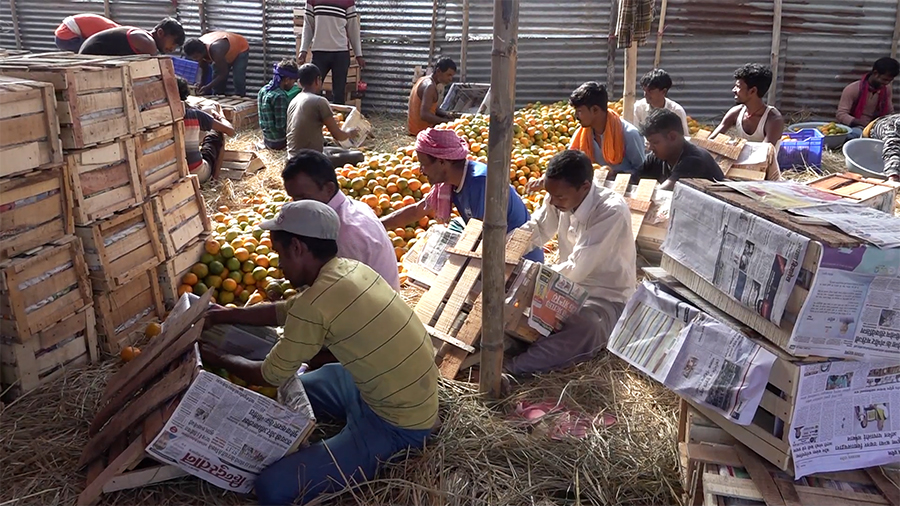
Like in the past few years, the issue of orange exporters in Gelephu facing the shortage of wooden crates has resurfaced this year as well. Sawmill operators in the country are not being able to supply the desired number of wooden crates to the exporters yet again. This has left the exporters worried that it might delay orange exports. The same problem occurs every orange export season but there are no workable solutions as yet.
There are 13 orange exporters in Gelephu this year. Each of them on average requires some 25,000 wooden crates during export season. However, only a couple of them have received the demanded number of crates. Most of them have got only about 2,000 to 8,000 wooden crates as of now.
To avoid the problem from reoccurring this year, the exporters claim to have placed orders for wooden crates to sawmills in Wangdue Phodrang, Thimphu, Paro, Tsirang, Dagana and Sarpang in January this year. However, sawmill operators could not supply the crates as per the demand.
Now that the orange export is underway, the exporters are worried about running out of crates.
Sangay Zam, an orange exporter, “I made Nu 10,000 as advance payment. I require thirty-five to forty thousand crates for my oranges. The sawmill operator hasn’t even made 10,000 crates. He just gave me 330 crates so far. I don’t think it will be possible for him to make thirty to forty thousand boxes before the season ends.
Chhimi, an orange exporter said, “we have been buying wooden crates from Bhutan as instructed by the government. We agreed with sawmill operators and submitted a copy to the Association of Wood-Based Industries. But now, the agreement doesn’t seem to be working and we don’t have enough crates.”
Sangay, an orange exporter said, “now some exporters started facing shortages of crates. To get the crates, some of us are making 100 per cent advance payment. If we want 7,000 crates, we are paying 15 to 16 hundred thousand ngultrum. But I don’t think the crates will be sufficient to export my oranges. I don’t think they can supply the crates on time.”
After the government stopped the import of crates from India last year, the exporters started buying wooden crates from sawmill operators in Bhutan.
Exporters, sawmill owners, the Bhutan Chamber of Commerce and Industry and the Association of Wood-Based Industries had a general meeting this year where they again agreed to use locally-made crates.
However, now the exporters are suggesting the import of crates from India to meet the demand.
On the contrary, some exporters who got the required number of crates say, other exporters who are not happy with the supposed shortage are trying to maneuver the rule so that they can import Indian crates which are cheaper.
“We have invested our money in buying wooden crates while they invested in buying oranges. So, it is unfair for us. Some are intentionally not buying crates here in the hope of obtaining a permit to buy it from India,” said Sangay Chhoden, an orange exporter.
According to sawmill operators in Gelephu that BBS talked to, making wooden crates from quality timber is expensive and it is not profitable.
Last year, when sawmill operators were not able to meet the demand, they imported wooden crates worth Nu 25.5 M.
Karma Wangdi, Gelephu
Edited by Sangay








